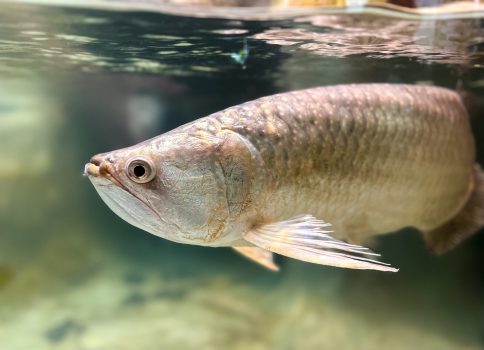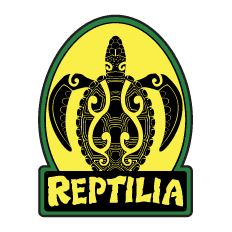Jardini Arowana
Common Name: Jardini Arowana
Scientific Name: Scleropages jardinii
Names: N/A
Locations: Whitby

Diet
Jardini Arowanas are carnivorous and feed on fish, insects, crustaceans, and small amphibians in the wild. They are opportunistic predators, often preying on anything that fits into their mouths.
Average lifespan
Jardini Arowanas can live up to 10 to 15 years, with proper care and a healthy diet.
Size
Jardini Arowanas can grow up to 60 centimeters (24 inches) in length.
Weight
They can weigh between 4 to 6 kilograms (8.8 to 13.2 pounds) as adults.
About
Jardini Arowanas are native to Northern Australia and parts of New Guinea. They inhabit slow-moving rivers, billabongs, and swampy areas with plenty of submerged vegetation. Known for their stunning metallic scales and long, graceful bodies, they are highly adapted to their aquatic environments.
Size and behavior
Jardini Arowanas are territorial and solitary fish, often patrolling their territory aggressively. They are strong swimmers and can jump out of the water to catch prey. Their sleek, elongated bodies and upward-facing mouths make them effective predators near the water’s surface.
Diet and nutrition
In the wild, Jardini Arowanas hunt live prey such as small fish, crustaceans, and insects. In captivity, they thrive on a varied diet of live, frozen, or pellet food, including fish, shrimp, and worms. A balanced diet is crucial to maintaining their health and vibrant coloration.
Conservation status
The conservation status of Jardini Arowanas is not well-documented, but they are not currently listed as endangered. Local populations may be affected by habitat destruction and water pollution, emphasizing the importance of habitat preservation for their survival.
Fun fact
Jardini Arowanas have the unique ability to breathe air, thanks to their specialized swim bladder. This adaptation allows them to survive in oxygen-depleted waters, making them incredibly resilient in their natural habitats. Their ability to leap out of the water to catch prey has also earned them the nickname “water monkeys.”
Call or visit your local Reptilia Facility to learn how you can adopt one of these amazing reptiles.










